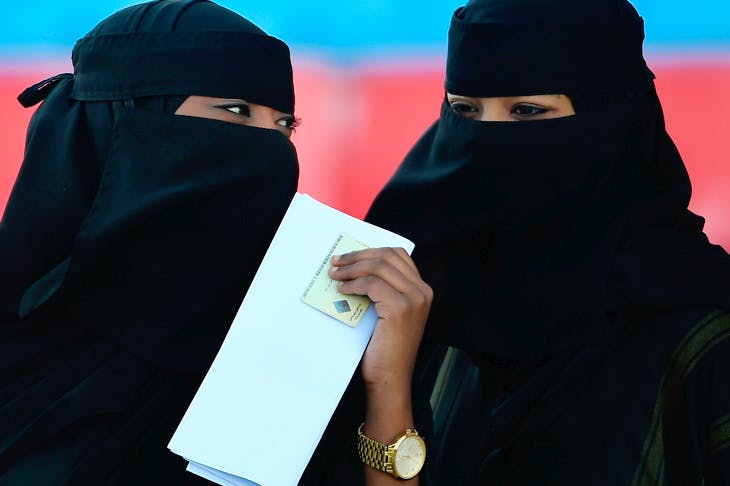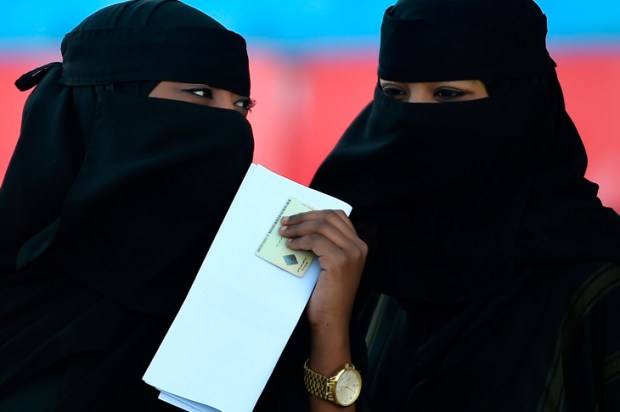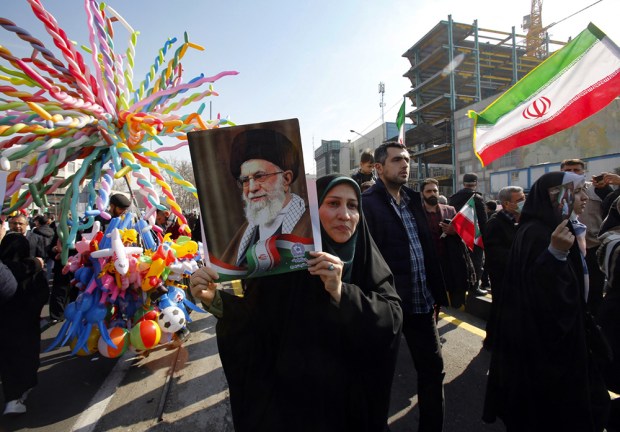The recent debate stirred by claims that Islam is the most feminist religion (Q&A Feb 13, 2017) and Islamic law bestowed women’s rights (junkee.com Oct 8, 2014) opens a Pandora’s box of thorny questions. If Islam is feminist, why is discrimination institutionalised in Saudi Arabia and Iran, the pillars of Sunni and Shiite Islam? If Islam improved the lot of women, what was their status in pre-Islamic Arabia? What is the position of Muslim women reformers on feminism in Islam?
Guardianship laws in Saudi Arabia restrict and infantalise women, as male kin have control over their medical treatment, education, choice of spouse, divorce, acquisition of property and so forth. In Iran, the hijab is considered the ‘beating heart of the religion’. ‘Bad hijab,’ or showing hair in public, is a criminal offence. According to Sharia law, polygyny, as well as inequality in marriage, custody, inheritance, court testimony and compensation are lawful.
Such gender discrimination is unacceptable according to the UN Charter. Nonetheless, Muslim majority countries were signatories to the 1948 Universal Declaration of Human Rights. In 1990, member states of the Organisation of the Islamic Conference adopted the Cairo Declaration on Human Rights in Islam. Based on Sharia law, the declaration was a reaction to the universal character of the UDHR and Western failure to include consideration of Islamic faith and culture.
Muslim states also ratified the Convention on the Elimination of all Forms of Discrimination Against Women but presented reservations concerning Sharia law provisions that invalidated the guarantees of equal rights in articles of the covenant.
Sharia law might be subject to multiple interpretations but today the Islamist movements that are aiming to become mainstream tender an extremist interpretation. Moreover, the two titans of the Islamic world are competing for piety in order to burnish their credentials for leadership. Extremist, sexist ideology has spread with the aid of Saudi Arabia’s petrodollars and Iran’s paramilitary proxies.
Great progress for women is often claimed for the period of early Islam but how did women fare in pre-Islamic Arabia? According to Islamic tradition, the latter was a period of chaos, ignorance, denigration of women and female infanticide. However, the historical account of women in that era is limited.
The late Moroccan sociologist, Fatima Mernissi, asserted there was evidence for a matriarchal society in which women were free to select and discard sexual partners. The biological father and paternal legitimacy carried no importance. Apparently, women had the authority to divorce men by stating ‘I divorce you,’ a practice of repudiation continued by men to this day. Pagan idols were worshipped and some demanded child sacrifice. Of the many deities, the most powerful and violent were goddesses. Mernissi maintained that women became subjugated in the post-Islamic period to expunge association with the fierce goddesses and purify the new order. According to the Orientalist William Robertson Smith, the new authority adopted a parallel patriarchal system that existed in pre-Islamic Arabia.
Maintaining the faith was instituted and regulated through the family, which functioned as a mini patriarchy. Male domination and sexuality was fundamental to its structure. Men’s commitment to Allah and the patriarchal order was central to their lives. Women were viewed as potentially dangerous troublemakers, who could cause fitna or chaos in society, and it was incumbent on men to control women’s sexuality and prevent them from causing disorder. Indeed, the honour of a man and his family was dependent on the sexual purity of the females, or he would be shamed. Control of women became enshrined in laws that gave a man the right to subordinate his women in the name of social order. With these laws, women’s oppression was institutionalised.
Although Sharia law is considered divine, over the centuries there were changes to a variety of rulings, such as those related to war, taxation and contracts. Nevertheless, family and inheritance laws remained uncontested. A married woman was permitted to retain her property. However, in a society based on tribalism, patriarchy and polygynous marriage, this measure probably aimed at avoiding inheritance of tribal assets by other wives and their offspring.
Women reformers from Muslim majority countries have called for an end to archaic discriminatory laws and cultural practice. Many argue such laws are unfair on moral grounds and are not consistent with a number of egalitarian statements in the holy texts. In practice, however, laws and customs favoured men.
In Iran, the One Million Signatures Campaign was mobilised to reform sexist laws through a petition addressed to the parliament. Volunteers who collected signatures faced arrest and prison, often on charges of ‘acting against national security’. Many activist women were arrested, at times by female police squads. Iranian women have endured brutal oppression, prompting Nobel Laureate Shirin Ebadi to pronounce the 1979 Islamic revolution ‘a revolution of men against women’.
In Saudi Arabia, intrepid activist Wajeha Al-Huwaider held a placard that read ‘Give Women Their Rights’ before she was arrested for conducting a demonstration. Together with Fawzia Al-Ayouni, she founded an unlicensed association for the protection and defence of women’s rights, which grew out of a movement to allow women the right to drive. The organisation launched an internet campaign for a ban on child marriage and another titled ‘No to Women’s Oppression’ that gave victims a voice on YouTube. Huwaider and Ayouni brought food to a woman whose husband had locked her in the house, and were charged with takhbib (inciting a wife to disobey her husband.) The Arab Spring hindered women’s rights in parts of the Muslim world, yet an increasing number of Muslim majority countries, including Saudi Arabia, recognise the need for change. Feminist minded men have come on board too, notably in Iran, by wearing the hijab in solidarity with women humiliated or arrested by morality police who enforce Islamic dress code.
The concept of Islam holding supremacy in feminism has evoked derision, but perhaps academia could enlighten us with historical research that sidesteps Said’s fashionable and prevailing ‘orientalism’ and his disparagement of Western scholarship. Discourse based on knowledge could avert partisan rants.
Got something to add? Join the discussion and comment below.
Get 10 issues for just $10
Subscribe to The Spectator Australia today for the next 10 magazine issues, plus full online access, for just $10.














Comments
Don't miss out
Join the conversation with other Spectator Australia readers. Subscribe to leave a comment.
SUBSCRIBEAlready a subscriber? Log in